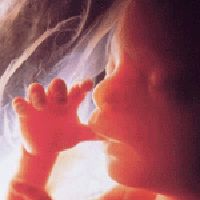Article
Diabetes and Famine: Some Findings Clinically Applicable
Author(s):
Endocrinologists generally see middle-aged people who have developed type 2 diabetes mellitus (T2DM) subsequent to overnutrition (or overeating) and weight gain. Most clinicians tend to forget that low caloric intake, or undernutrition, in the prenatal period or during a child's formative years also seems to increase the risk of the T2DM later in life.

Endocrinologists generally see middle-aged people who have developed type 2 diabetes mellitus (T2DM) subsequent to overnutrition (or overeating) and weight gain. Most clinicians tend to forget that low caloric intake, or undernutrition, in the prenatal period or during a child’s formative years also seems to increase the risk of the T2DM later in life. Researchers from The Netherlands have published a review piece in the October 2014 issue of Current Diabetes Reports that elucidates undernutrition’s role in T2DM from the perspective of studies conducted during and after famine.
During the last century, researchers have gather data during and after famines to study late health consequences of poor nutritional circumstances in early life. The authors cover 7 major famines since 1918, and explain not only why the famines occurred, but also the average daily caloric intake for affected people.
War, severe weather patterns, and economic mismanagement have all resulted in famine. Because famines vary drastically in the extent of and the length of food deprivation, the authors describe how studies have been inconsistent because of the specific populations and conditions studied, but informative.
Famine exposure during prenatal life is clearly associated with increased diabetes in adulthood. Youths of any age also seem to be affected, but to a lesser degree. The odds ratio of children exposed to famine developing diabetes as adults ranges from 1.1 to 3.84.
Explanations for this association are still unclear, but developing. The authors cover several potential mechanisms including fetal programming and epigenetics.
The authors indicate that clinicians may see conditions that mimic famine-associated fetal deprivation may apply. Patients who starve due to economic limitations or who fast while pregnant (eg, during Ramadan) may put their offspring at risk for diabetes later in life.




